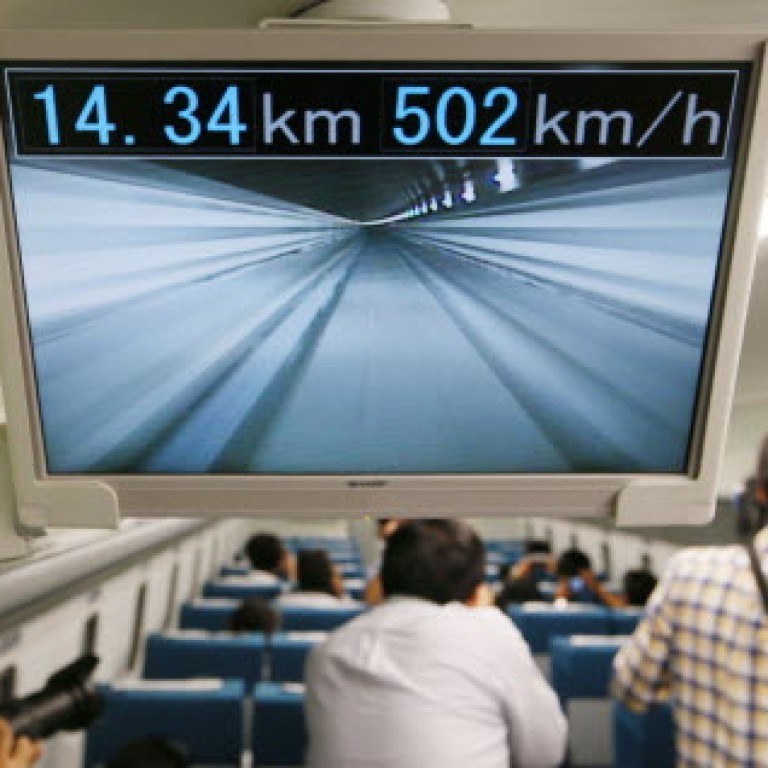
Japanese "maglev" train to attempt 589km/h speed record
Magnetic levitation system will hopefully propel seven cars at more than 598km/h
A Japanese company will tomorrow attempt to break a 589km/h speed record set last week by its new magnetic levitation train. Central Japan Railway, often called JR Central, said last week's record-breaking test run involved a seven-car "maglev" train on a 43km track in Japan's Yamanashi prefecture.
Magnetic levitation, or "mag-lev", train systems use magnets to lift and propel the train, promising a ride that's smoother, quieter and nearly twice as fast as traditional high-speed rail.
JR Central set the previous maglev train speed record of 581km/h on the same track in December 2003, according to the company. In 2003 tests of a Shanghai maglev train achieved a Chinese record speed of 501km/h.
Japanese officials plan to open a maglev line between Tokyo and the city of Nagoya in 2027, cutting the 90-minute travel time between the two on a traditional high-speed rail line by more than half. Because maglev trains require straight, even and predictable terrain to run smoothly, most of the route will be through tunnels.
"It's good news obviously that the technology keeps advancing, and that countries are focusing on this," said Andy Kunz, president of the US High Speed Rail Association. "We consider high-speed rail the future, no question - from energy use, to being able to move large numbers of people quickly, to climate solutions."
Yet Kunz said maglev trains were expensive, power-intensive and potentially unsafe.
"The problem is if you have one tiny little settling of the earth - which happens all the time because of plate tectonics - that can create little movements in the maglev system, which can send trains crashing into stuff," he said. "It's a very difficult system to make operational."
Germany discontinued a high-profile maglev programme after a fatal collision on a test track killed 23 people in 2006.
"We support advances in rail and technology," Kunz said, "but what we really support is technology that's proven. We can talk about maglev and the Hyperloop [pressurised tubes], all these things that aren't proven, then spend 20 years hoping they'll get built. But meanwhile, we need good fast rail today."
